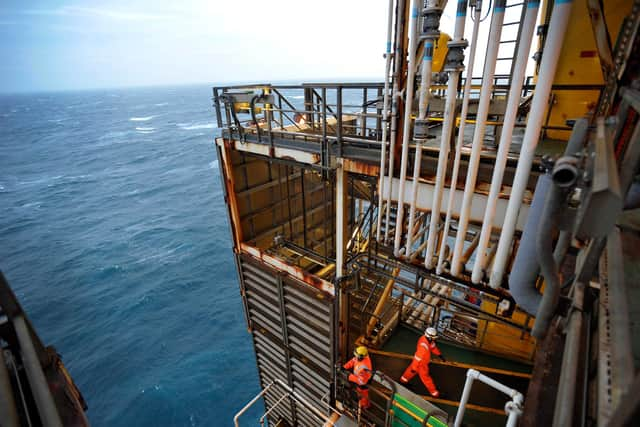Scottish GDP to reach pre-Covid levels by Q1 2022, predicts KPMG
According to its UK Economic Outlook, gross domestic product (GDP) will reach 6.4 per cent in 2021 – up from the 5.5 per cent forecast in March. The accountancy giant believes growth will be supported by the lifting of restrictions and by manufacturers that benefited from higher investment during the early stages of the pandemic plus oil and gas businesses experiencing an increase in both global demand and oil prices.
KMPG also said that while its GDP growth projections for next year have been revised slightly downwards to 5.2 per cent from the 5.8 per cent forecast in March, “once Scotland regains its pre-pandemic level of output in early 2022, services firms are expected to underpin more consistent growth”.
Advertisement
Hide AdAdvertisement
Hide AdThe firm predicts that financial and business services firms will be the main contributor to national GDP growth in the long term, with the relative lesser impact of Brexit on Scotland’s financial sector compared to London an important factor.


Catherine Burnet, regional chair for KPMG in Scotland, said: “Our latest analysis shows that the pace of Scotland’s economic recovery is accelerating as restrictions ease, while the performance of two of our most important sectors – manufacturing and oil and gas – drives us further forward.
“How quickly we move along the Scottish government’s roadmap out of lockdown over the summer could have an impact on our projections, but it’s still incredibly encouraging to see GDP growth could return to pre-pandemic levels by the start of next year.”
However, Scotland’s GDP growth is projected to fall slightly behind the UK during 2021 and 2022, with the latter forecast to grow by 6.6 per cent and 5.4 per cent in the two years respectively.


Rising cost pressures and the reversal of temporary tax cuts will add to inflation this year, but KPMG’s analysis shows it should moderate towards the second half of next year, averaging 1.7 per cent in 2021 and 2.1 per cent in 2022.
Breathing space
It also expects the Bank of England to keep interest rates on hold in the short term to allow the economy to fully recover and mitigate the downside risks to the outlook – but it also believes there could be a “significant” uptick in the number of company insolvencies, potentially peaking at about 8,000 around the turn of the year before falling back again to around 4,000 per quarter.
Ms Burnet added: “We cannot forget that some sectors of the Scottish economy, such as tourism, hospitality and retail, have been more acutely affected by the pandemic than others. The end of government support schemes may coincide with a rebound in demand for these sectors, but there is still a steep hill to climb to overcome the disruption created by Covid-19.
“This challenging environment, combined with factors such as rising cost pressures, could slow Scotland’s economic recovery down.”
Advertisement
Hide AdAdvertisement
Hide AdYael Selfin, chief economist at KPMG UK, proposed that the possible emergence of new variants of coronavirus that are less responsive to current vaccines “is still a downside risk, albeit less severe than previously, as the economy has adapted to operating under social distancing restrictions”.
A message from the Editor:
Thank you for reading this article. We're more reliant on your support than ever as the shift in consumer habits brought about by coronavirus impacts our advertisers.
If you haven't already, please consider supporting our trusted, fact-checked journalism by taking out a digital subscription.
Comments
Want to join the conversation? Please or to comment on this article.
